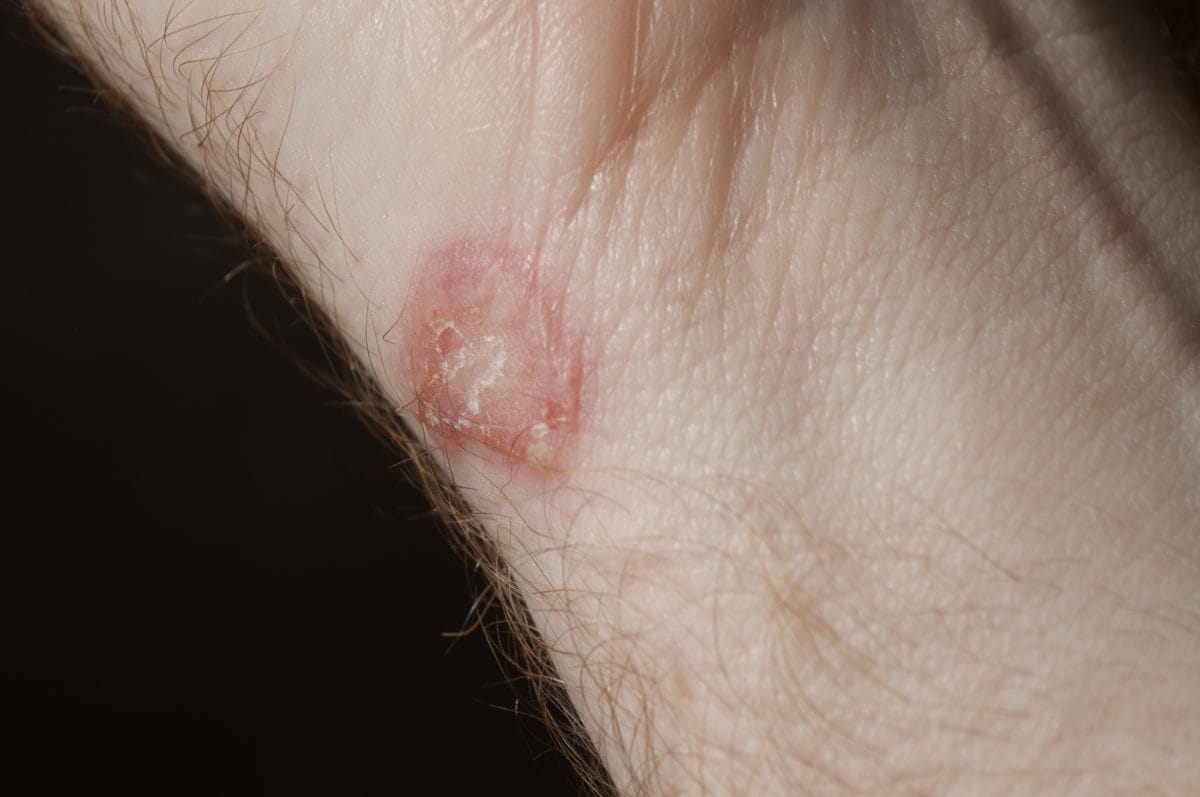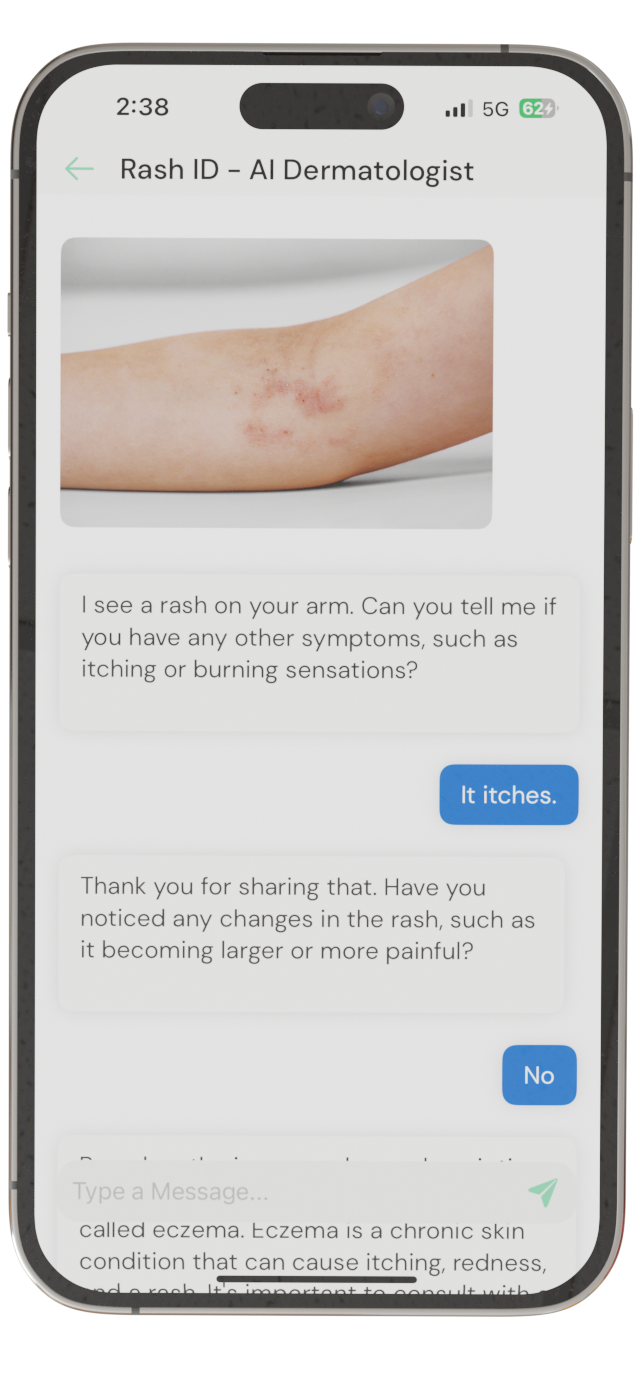
Understanding Ringworm: Causes, Treatments, and Prevention
What is Ringworm?
You might be surprised to learn that a fungus — and not a worm — causes ringworm. Fungi thrive in warm and humid areas such as locker rooms and public showers. This common and contagious skin infection gets its name from the red, itchy, ring-shaped skin plaque (a type of scaly rash). It spreads easily and through close contact.
You get ringworm from contact with an infected person, animal or object. The infection goes by different names depending on which body part it affects. Ringworm on your body is called tinea corporis. This type of ringworm affects your arms, legs, torso, and face. Ringworm is treated with antifungal medication available either over-the-counter or as a prescription.
Types of Ringworm
Ringworm has different names based on where it appears on your body — and it can appear just about anywhere. Ringworm infections include:
- Athlete’s Foot (Tinea Pedis): This fungal infection causes an itchy, burning skin rash between your toes and on the soles of your feet. Your skin may become scaly and cracked or develop blisters. Sometimes, your feet smell bad.
- Jock Itch (Tinea Cruris): Tinea cruris causes a red, itchy rash in your groin, upper thighs, or rectum. Some people get blisters.
- Scalp Ringworm (Tinea Capitis): This causes scaly, red, itchy bald spots on your scalp. If left untreated, the bald spots can grow bigger and become permanent.
- Hands (Tinea Manuum): Signs of ringworm on your hands include dry, cracked palms and ring-like patches.
- Beard (Tinea Barbae): Ringworm appears on your neck, chin, and cheeks. The patches might become crusted over or filled with pus.
- Toenails or Fingernails (Tinea Unguium or Onychomycosis): Nails become thick, discolored and deformed.
How to Recognize Ringworm: Common Symptoms and Visual Clues
Recognizing ringworm's unique features is crucial for a proper diagnosis. Here are some common descriptions and search terms people might use when identifying ringworm:
- Red, Circular Rash: Ringworm often starts as a red, scaly patch of skin and quickly develops into a ring-shaped rash.
- Itchy Skin Rash: Persistent, itchy rash that worsens with scratching.
- Scaly Skin: Causes areas of skin to become rough, dry, or scaly.
- Hair Loss with Rash: In scalp ringworm cases, people may experience hair loss in patches.
- Rash Between Toes: Athlete’s foot is characterized by a red, itchy, and scaly rash between the toes.
- Itchy Groin Rash: Jock itch presents as an itchy, red rash in the groin or upper thighs.
Who Gets Ringworm?
Ringworm affects people of all ages. You’re more at risk for ringworm if you:
- Have a weakened immune system or an autoimmune disease.
- Participate in high-contact sports, such as wrestling.
- Sweat excessively.
- Use public locker rooms or showers.
- Work closely with animals that might have ringworm.
How Common is Ringworm?
Ringworm is contagious and extremely common. It can affect 20% to 25% of the world’s population at any given time.
Symptoms and Causes
Symptoms typically appear between four and 14 days after contact with the fungi, including circular, ring-shaped scales or plaques, flat patches with a raised, round border, itchy skin, and hair loss or bald spots in the affected area.
Despite its name, a fungus causes ringworm and thrives in warm, damp environments. You become infected on contact with the fungus on someone else's skin.
Diagnosis and Tests
Your healthcare provider can diagnose ringworm by examining your skin. They may scrape the area to look at the skin cells under a microscope. Examining the scales typically confirms ringworm.
Management and Treatment
Several nonprescription (over-the-counter) and prescription antifungal medications are available to treat ringworm.
Antifungal Creams and Powders
Over-the-counter (OTC) antifungal creams, gels, or powders typically work well:
- Clotrimazole (Lotrimin® or Mycelex®)
- Miconazole (Desenex®)
- Terbinafine (Lamisil AT®)
- Tolnaftate (Tinactin®)
See your healthcare provider for an oral prescription medication if your symptoms worsen or don’t clear after two weeks.
Oral Medication
Prescribed for one to three months, oral antifungal medications include:
Antifungal Shampoo
Antifungal shampoos like ketoconazole (Nizoral A-D®) may stop scalp ringworm from spreading but will not cure it. Family members might benefit from its use to contain the infection while the affected individual also takes prescribed oral antifungal medication.
Home Remedies for Ringworm
Home remedies, such as apple cider vinegar or tea tree oil, have limited efficacy. Disinfectant sprays like Lysol® or bleach can help by removing the fungus from surfaces. Wash clothes, sheets, and towels in hot water regularly.
Prevention
Ringworm thrives in damp, warm areas. To prevent infection:
- Change socks and underwear daily.
- Shower after sports or exercise.
- Wear sandals in public showers and locker rooms.
- Dry skin thoroughly, especially between the toes.
- Avoid sharing personal hygiene items.
- Disinfect surfaces with bleach.
- Treat pets for ringworm if infected.
Living With and Preventing Reoccurrence
Ringworm can reoccur if treatment is discontinued too soon. Continual treatment until the infection clears completely is crucial.
Consult a healthcare provider if the infection:
- Appears on your scalp
- Shows signs of infection
- Occurs during pregnancy
- Spreads to other areas
- Doesn’t improve after OTC treatments
Additional Questions
- How does ringworm differ from eczema? Eczema isn't contagious, unlike ringworm.
- Is ringworm an actual worm? No, it's a fungal infection.
- Can animals transmit ringworm? Yes, ensure hygiene after pet contact.
For further reading, refer to reputable sources like Cleveland Clinic, Mayo Clinic, or WebMD for more detailed information.
Knowledge is vital in managing health conditions like ringworm effectively and preventing reinfection. Always follow your healthcare provider’s advice.

Identify Skin Conditions Instantly
Try Rash ID for Free